Keywords: Indigenous Affairs
-
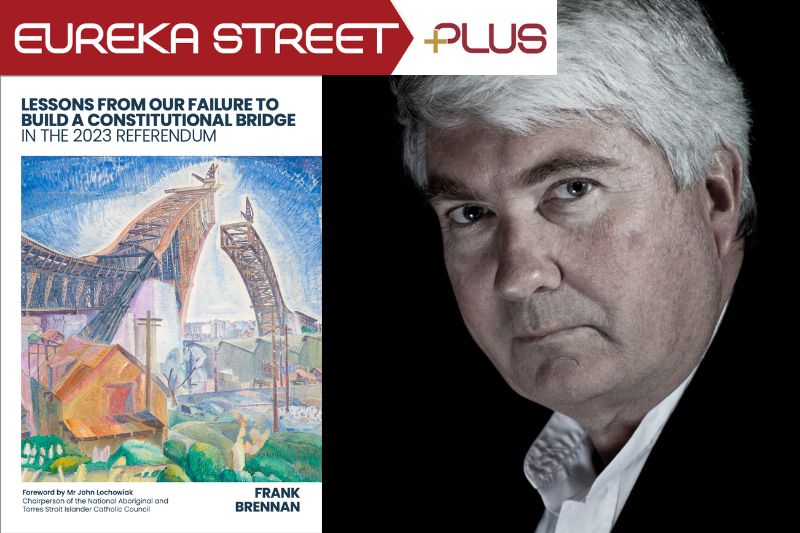
AUSTRALIA
- David Halliday
- 28 June 2024
It's been eight months since the Voice referendum, and people are starting to grapple with what its defeat means for Australia. There are few voices in Australia as qualified to conduct a postmortem of the outcome of the Voice referendum campaign as Frank Brennan. We examine what lessons can be learned and crucually, whether there’s reason for hope for Indigenous constitutional recognition.
READ MORE
-
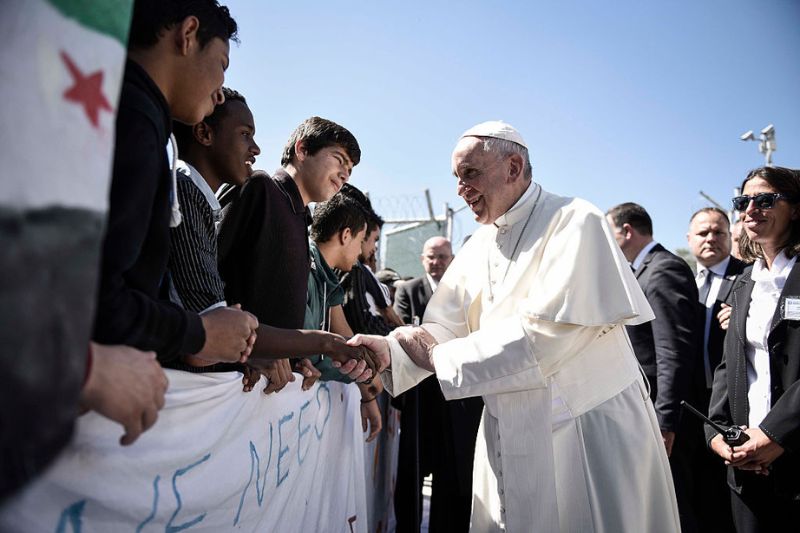
RELIGION
- Bruce Duncan
- 21 June 2022
3 Comments
Some 278 Catholic bishops, clergy, religious personnel and lay people will meet as members of an unprecedented Plenary Council during 3-9 July to finalise the resolutions of their first assembly last year. However the May working document ‘Framework for Motions’, despite much worthy content, especially on Indigenous affairs, relies on a narrow notion of mission overly focused on inner-church issues at the expense of the wider social engagement that Francis emphasises.
READ MORE 
-
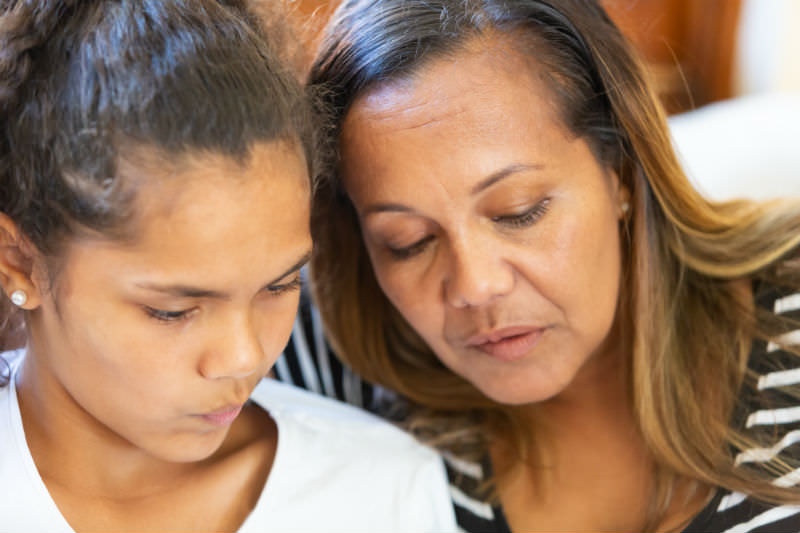
AUSTRALIA
- Celeste Liddle
- 10 May 2019
7 Comments
We can tell the Morrison government has no interest in Indigenous affairs because, apart from some money for suicide prevention programs (albeit less than half that requested), its budget showed a series of cuts. There is a lot of unfinished business to be addressed before it makes sense to adopt a voice to Parliament in the Constitution.
READ MORE 
-
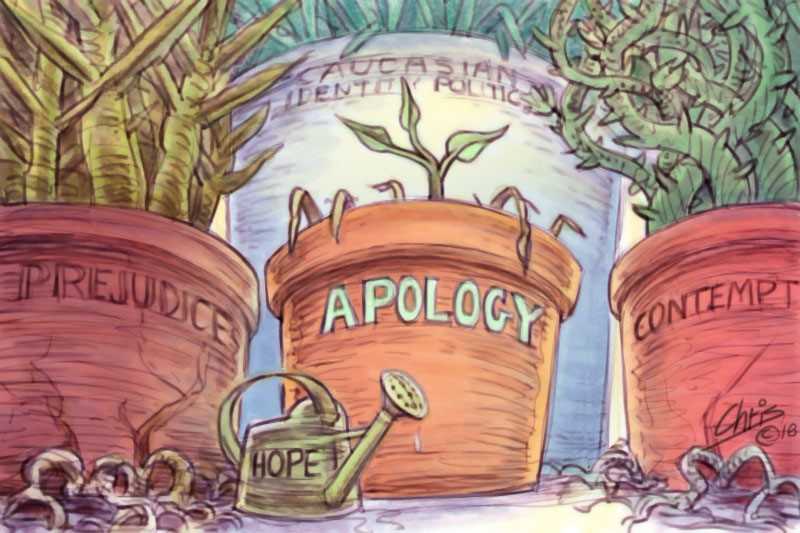
AUSTRALIA
- Andrew Hamilton
- 09 February 2018
7 Comments
Ten years have passed since the Apology to Australia's Indigenous Peoples by then Prime Minister Kevin Rudd on behalf of Parliament and the nation. It seems longer. It was a time of great hope. Today, with respect to Indigenous affairs as to much else, fewer people hold great hope that anything good can come out of Canberra.
READ MORE 
-
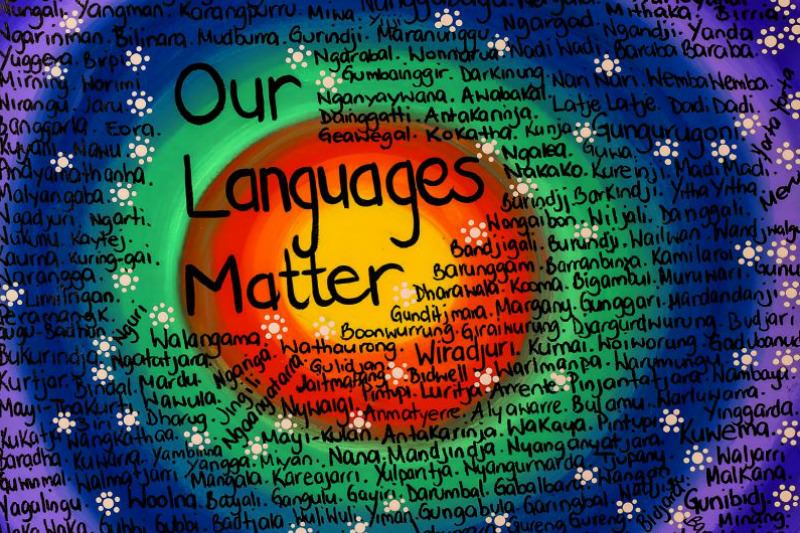
AUSTRALIA
- Frank Brennan
- 04 July 2017
6 Comments
It is no disrespect to those Aborigines and Torres Strait Islanders gathered at Uluru to say that now is the time for the report of the Referendum Council to be scrutinised by our national politicians, and that our elected leaders should pay special heed to the observations of those Indigenous members of the federal parliament who have offered considered reflections on the way forward. In particular, our elected representatives should have regard to the views of Patrick Dodson who is now Bill Shorten's Shadow Assistant Minister for Indigenous Affairs and Aboriginal and Torres Strait Islanders.
READ MORE 
-
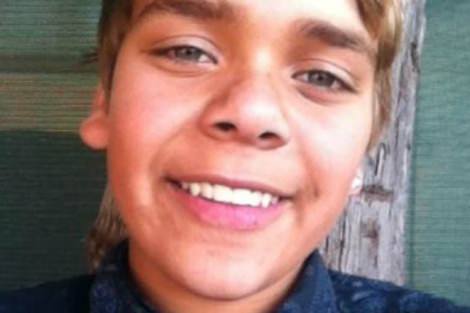
AUSTRALIA
- Kate Galloway
- 06 September 2016
5 Comments
This is the scandalous state of Indigenous affairs in Australia. Aboriginal and Torres Strait Islander people and their communities literally face a life and death struggle against the state itself. These are not isolated incidents. They represent the intrinsic failure of our society to heed the concerns of communities themselves, and to engage with fellow citizens in a dignified and respectful way. The failure is so grave that state treatment meted out to Indigenous Australians is actively harmful on a large scale.
READ MORE 
-
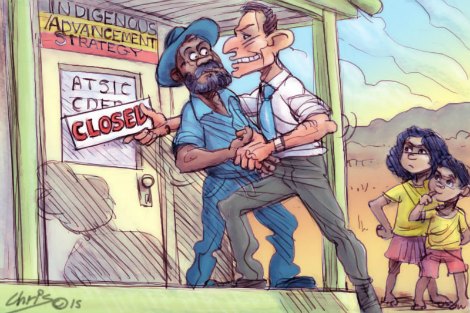
AUSTRALIA
- Michele Madigan
- 30 June 2015
8 Comments
This week sees the new budget allocations for Aboriginal communities take effect, with deep soul-destroying cuts being spun as 'advancement'. They reflect a redefinition of reality faced by many Australians, with indigenous people unsure how they have benefited from the Tony Abbott declaring himself the Minister for Aboriginal Affairs and putting the Indigenous Affairs Office within his own Department.
READ MORE 
-

AUSTRALIA
- Mike Bowden
- 19 November 2013
21 Comments
Jordan Jenkins, owner of the Tennant Creek Hotel, let the cat out of the bag: Tennant Creek is addicted. 'I mean, we are not going to go bankrupt so police can present stats to people,' he said. It seems the police are doing their job too well. Alcohol sales are declining. Profits are at risk. And so the liquor licensees of this remote town with a large Aboriginal population are pulling out of an alliance designed to reduce alcohol related harm.
READ MORE 
-

RELIGION
- Frank Brennan
- 25 March 2013
9 Comments
Given the opinion polls and divisions in Labor, it's no surprise Abbott is confidently preparing his team for government. Anything he says about constitutional change therefore carries weight. Advocates for constitutional recognition of Indigenous Australians would be heartened then by two of his recent speeches.
READ MORE 
-

RELIGION
- Frank Brennan
- 21 March 2013
1 Comment
Frank Brennan's address 'Recognising Aboriginal and Torres Strait Islander People in the Constitution' presented at the 18th National Schools Constitutional Convention, The Museum of Australian Democracy at Old Parliament House, 21 March 2013.
READ MORE
-

RELIGION
- Frank Brennan
- 11 February 2013
9 Comments
'I have been asked to provide a spiritual reflection for Fred who was not always given to spiritual conversation. I find the Old Testament prophecy of Isaiah helpful. He came to bring good news to the poor, proclaim liberty to captives, bring freedom to the oppressed and sight to the blind. Fred did all these things, sometimes brusquely.' Frank Brennan on the 20th anniversary of Fred Hollows' death.
READ MORE
-

ARTS AND CULTURE
- Barry Gittins
- 05 December 2012
4 Comments
Hindrance Day was conceived as a means of commemorating the millions of acts of self-indulgence that marked the First Gillard-Abbott war on unAustralians. The concept of two minutes' ignorance was popularly adopted across what was left of the civilised world and became a key ritual of the annual celebrations.
READ MORE 